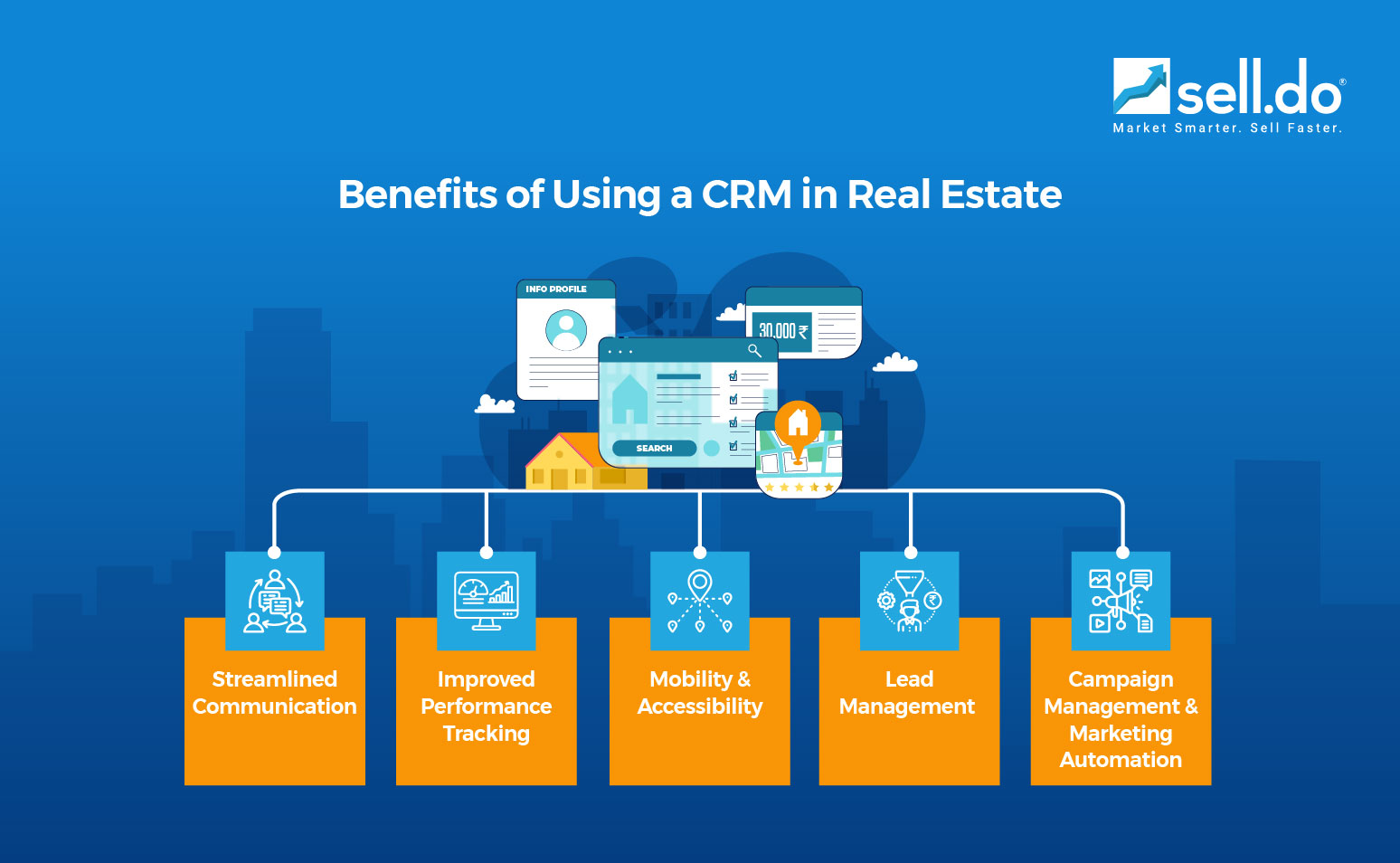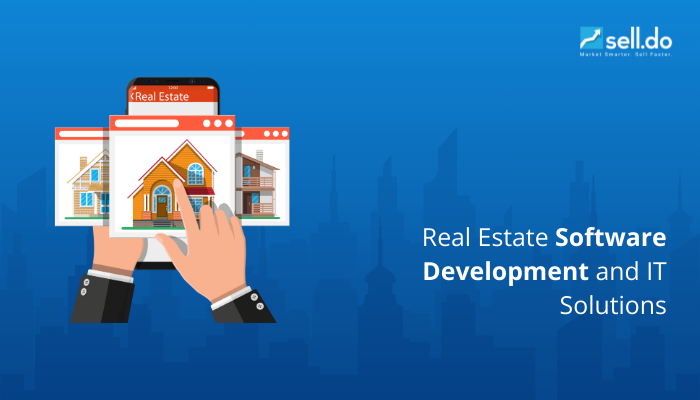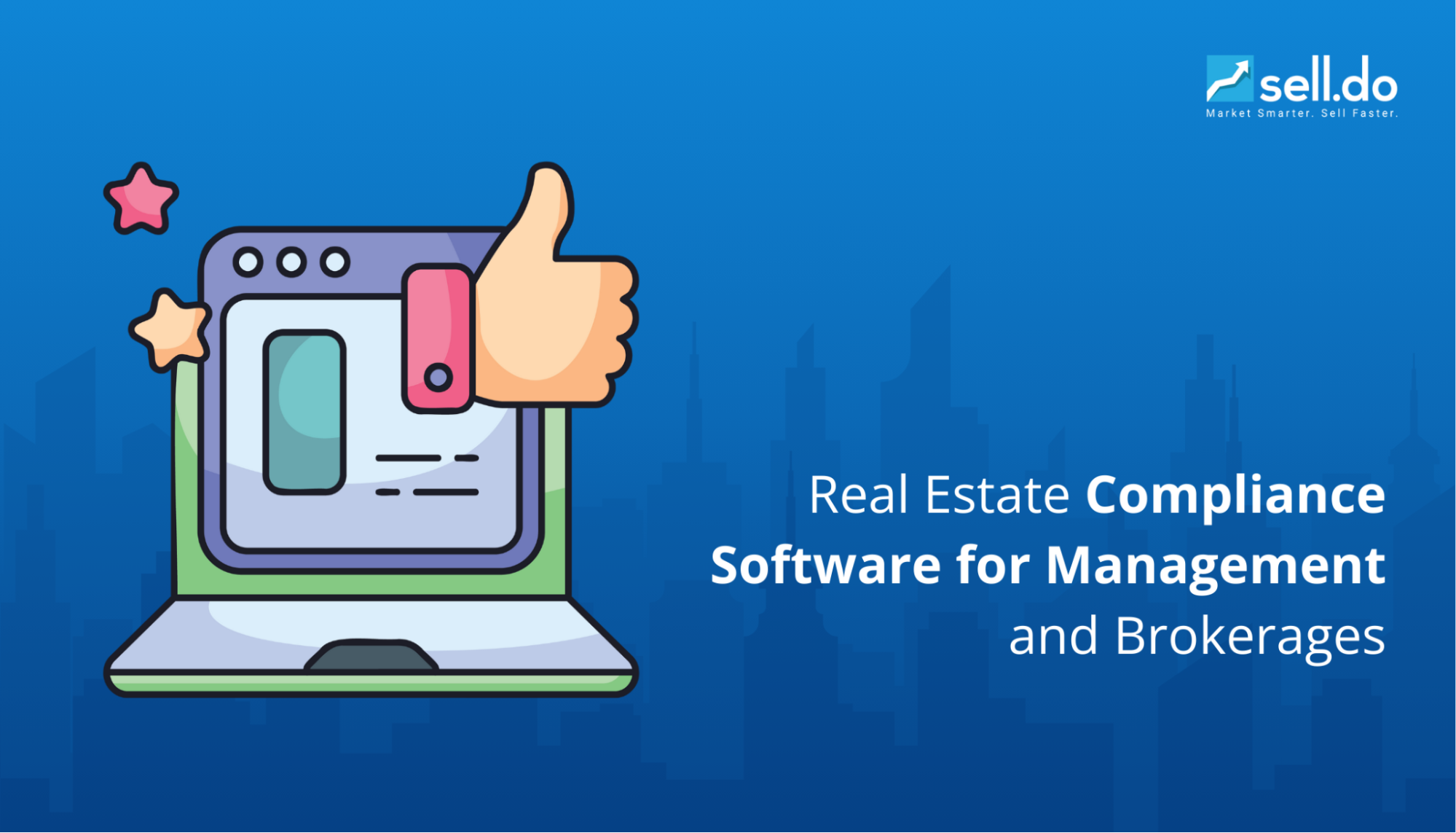In the fast-evolving world of real estate, where success hinges on efficient client management and effective communication, technology plays a pivotal role. Among the many technological advancements transforming the industry, Real Estate CRM (Customer Relationship Management) systems stand out as essential tools for modern agents and agencies. Tailored specifically for real estate professionals, CRMs offer a complete suite of features fabricated to streamline operations, enhance client interactions, and optimize business outcomes.
Definition and Core Functionalities Real Estate CRM
Real Estate CRM software is specialized software that centralizes and automates various aspects of real estate operations, catering specifically to the unique needs of agents, brokers, and agencies. Unlike generic CRMs, which may lack industry-specific functionalities, Real Estate CRMs integrate key features such as:
-
Property Listings Management:
Efficiently manage and update property details, availability, and marketing information.
-
Client Management:
Consolidate client information, communication logs, preferences, and transaction history in a centralized database.
-
Transaction Tracking:
Monitor and manage sales transactions, contract deadlines, and financial details seamlessly.
Benefits of Using a CRM in Real Estate
There are multiple benefits of using CRM in Real Estate. They are as follows:

-
Streamlined Communication:
Effective communication is very important to building and maintaining client relationships in real estate. Real Estate CRM streamline communication by consolidating various channels—emails, calls, messages—into a single platform. This unified approach ensures that agents can maintain a clear and consistent dialogue with clients throughout the buying or selling process.
For instance, agents using CRMs report a significant improvement in client satisfaction due to timely responses and personalized interactions facilitated by detailed client histories stored within the CRM. According to industry statistics, real estate professionals who leverage CRM systems experience up to 32% higher customer retention rates compared to those who don't, highlighting the impact of effective communication on client loyalty and satisfaction.
-
Improved Performance Tracking:
CRMs provide robust analytics and reporting features that enable real-time tracking of agent performance and productivity metrics. By harnessing data-driven insights, agencies can identify top-performing agents, pinpoint areas for improvement, and refine their strategies accordingly. This capability not only enhances sales performance but also fosters better client management practices through informed decision-making based on concrete data.
For example, a real estate brokerage saw a 25% increase in closed deals within six months of implementing a Customer relationship management (CRM) system. By analyzing agent activities and client interactions through CRM-generated reports, the brokerage identified and capitalized on strengths while addressing areas needing improvement, resulting in a measurable boost in overall performance.
-
Mobility & Accessibility:
In today's mobile-driven environment, access to real-time information is crucial for real estate professionals who are often on the move. CRMs with mobile capabilities empower agents with instant access to client details, property information, and transaction updates from any location. This flexibility translates into increased efficiency, responsiveness, and, ultimately, higher client satisfaction.
Research indicates that agents using mobile-enabled CRMs are 33% more likely to effectively manage client relationships and close deals faster compared to their non-mobile counterparts. This statistic underscores the importance of mobility in real estate CRM systems, allowing agents to stay connected and productive regardless of their actual location.
-
Lead Management:
Capturing, nurturing, and converting leads is simplified with the automation features of CRMs. Advanced functionalities such as lead scoring and segmentation enable agents to prioritize high-potential leads and tailor marketing efforts accordingly. This personalized approach not only accelerates conversion rates but also builds stronger client relationships through targeted communication and relevant interactions.
For instance, a real estate agency implemented CRM-driven lead nurturing campaigns and observed a 40% increase in lead conversion rates within three months. By leveraging automated follow-ups and personalized messaging based on lead behavior data stored in the CRM, agents were able to engage prospects more effectively and guide them through the sales funnel with greater success.
-
Campaign Management and Marketing Automation:
CRMs streamline the planning, execution, and tracking of marketing campaigns across multiple channels—email, social media, SMS, and more. Automation of repetitive tasks such as follow-up emails, newsletters, and social media posts frees up valuable time for agents to focus on client interactions and strategic initiatives.
Real estate agencies leveraging CRM-driven marketing automation have reported significant improvements in campaign ROI and operational efficiency. By delivering targeted messages to segmented audiences at optimal times, agents can maximize engagement and conversion rates effortlessly.
Importance of CRM Adoption in Real Estate
In today's competitive world of real estate, there is a significant Importance of CRM in Business and CRM for Realtors, where customer expectations are higher than ever, the adoption of a specialized CRM system can make all the difference. Beyond operational efficiency and client satisfaction, CRMs empower agents and agencies to stay agile, proactive, and responsive to market dynamics.
By harnessing the power of data analytics, personalized communication, and streamlined processes, real estate professionals can not only maintain a competitive edge but also nourish and grow long-term client relationships built on trust and exceptional service.
The ability to track and analyze client interactions, property trends, and market insights through a CRM provides invaluable strategic advantages. It enables agents to anticipate client needs, tailor marketing strategies effectively, and capitalize on emerging opportunities swiftly. Moreover, as the real estate industry continues to evolve, CRMs serve as essential tools for adapting to new technologies, regulatory changes, and shifting consumer preferences, ensuring sustainable growth and success.
Hence, there is a significant importance of Customer Relationship Management (CRM) in Real Estate.
Conclusion:
In conclusion, embracing a Real Estate CRM isn't merely a competitive advantage - it's a strategic imperative for real estate professionals looking to thrive in a competitive market. From enhancing communication and tracking performance to enabling mobile access and automating marketing efforts, CRMs offer a complete solution to elevate your real estate operations.
To experience the full potential of a specialized Real Estate CRM like Sell.Do, schedule your personalized demo today. Discover the Benefits of Real Estate CRM and how Sell.Do CRM can empower you to achieve your business goals efficiently and effectively in today's dynamic real estate landscape.
Embrace the future of real estate with Sell.Do. Schedule your personalized demo now and take your business to new heights!






Leave a comment
Comments (0)
Be the first one to comment.